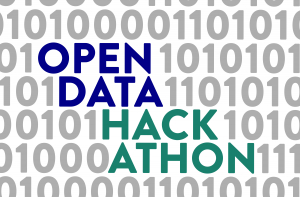ACDH virtual hackathon series
Not only in the context of Digital Humanities but also in other research areas the Open Data movement is gaining momentum. The core goal of this event series is to promote Openness in DH and show a path towards putting it into practice.
| Hackathon | Date | Location |
|---|---|---|
| ELEXIS hack – lexicographical data | 4.2.2019 (2 pm CET) – 20.2.2019 (midnight CET) | virtual |
| Vienna Open Data Day hack – cartographic data | 11.2.2019 (2 pm CET) – 28.2.2019 (midnight CET) | virtual |
| International Open Data Day hack – textual data | 14.2.2019 (2 pm CET) – 2.3.2019 (midnight CET) | virtual |
| Announcement of winners:
1st place: 700€, | 10.5.2019 | |
| Registration: bit.ly/acdh-hackathon-registration | 17.1.2019 – 1.2.2019 (noon CET) | virtual |
Results
The winners of all three hackathons have been cosen!
The results have been announced on GitHub:
The three hackathons centred on three data sets that are connected to Open Data events taking place in spring 2019:
The first task was to enrich a lexicographical dataset and took place at the time of the ELEXIS Observer Event.
The second task focusing on cartographic data was based on an Austrian Open Government Data set provided by the City of Vienna and took place at the time of the Open Data Day Vienna.
The final highlight of the series was the third hackathon that takes place in the context of the International Open Data Day.
Open Data is becoming a vital part of the Digital Humanities research process as projects such as ELEXIS are opening up (research) data.
One of the benefits of Open Data is that it can be used by anyone for any purpose
– which makes it an ideal resource for hackathons!
Usually hackathons take place on site, participants are given tasks to be solved within a given timeframe in a fixed location.
This requires the programmers to be flexible and available and to have access to travel funding. A virtual hackathon on the other hand offers people all over the globe the possibility to participate and contribute without having to travel.
For these reasons the proposed contribution is an Open Data hackathon series in a virtual format:
Participants will be given a specific Open Data set and a fixed time frame within which to solve a given task on the basis of the provided data.
Programmers will be able to participate either as individuals or in teams. Their code will be evaluated by a group of experts and the best submissions will be awarded winners’ certificates and prizes:
1st place: 700€,
2nd place: 500€,
3rd place: 300€
In the end, all submissions (not only the winners’) were made available Open Source in order for all results created in the course of the event series to be available and reusable for the entire DH community.
WHO ARE WE LOOKING FOR?
All skill levels are welcome!
We are looking for DH developers, students, researchers, and anyone interested in working with Open Data in the context of digital humanities.




 CC0, Pexels
CC0, Pexels photo (c) L. Sieht, Wikipedia, CC-BY 3.0
photo (c) L. Sieht, Wikipedia, CC-BY 3.0